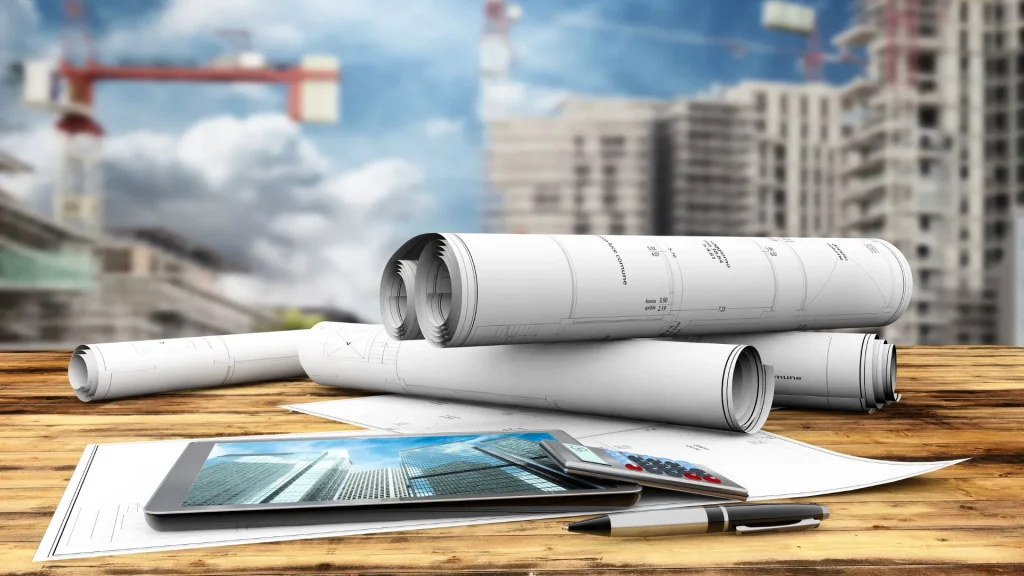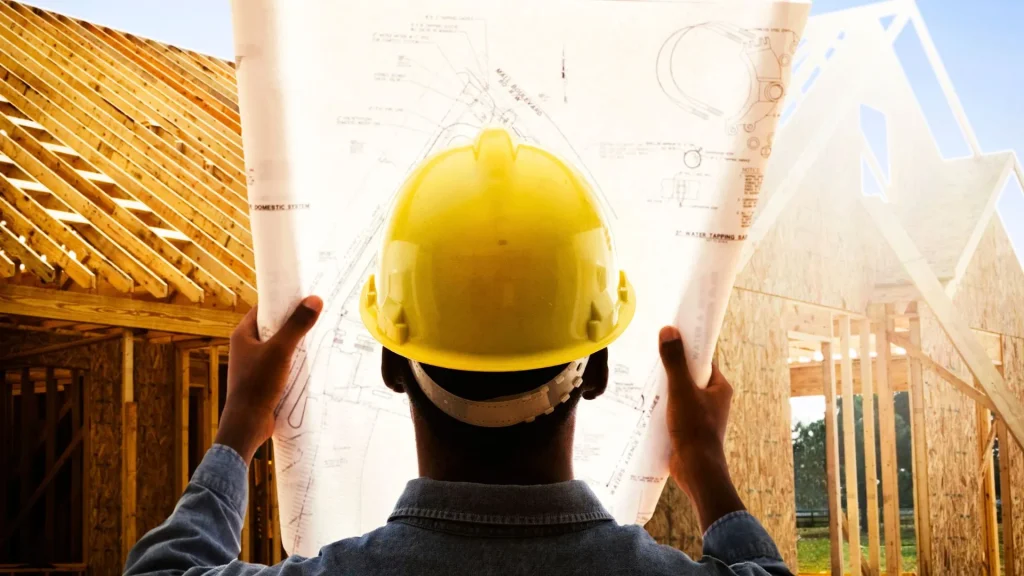Navigating Kenya’s building permit and approval process is crucial for any successful construction project. Whether you’re building a residential home, commercial building, or industrial facility, understanding the regulatory requirements can save you time, money, and legal complications. This comprehensive guide walks you through all the essential permits and approvals required for construction in Kenya.
Understanding Kenya’s Building Approval Framework
Primary Regulatory Bodies
National Construction Authority (NCA)
- Oversees construction industry regulation
- Contractor registration and classification
- Building standards and code enforcement
- Professional certification requirements
County Governments
- Building plan approval and permits
- Development control and zoning compliance
- Occupancy certificates and inspections
- Local building regulation enforcement
National Environment Management Authority (NEMA)
- Environmental impact assessments
- Environmental compliance certificates
- Waste management approvals
- Environmental monitoring requirements
Essential Permits and Approvals
1. Development Permission
What It Is: Development permission is the foundational approval required before any construction can begin. It confirms that your proposed development complies with local zoning laws and development plans.
When Required:
- All new construction projects
- Major renovations and additions
- Change of building use
- Subdivision of land
Application Process:
- Site survey and documentation
- Zoning compliance verification
- Development application submission
- Public participation (for large projects)
- Approval or conditional approval issuance
Required Documents:
- Title deed or lease agreement
- Survey plan and site plan
- Architectural drawings and plans
- Engineering reports (if applicable)
- Environmental compliance certificate (if required)
Timeline: 90-120 days Cost: KES 20,000 – 200,000 (depending on project size and location)
2. Building Plan Approval
What It Is: Building plan approval ensures your construction plans meet building codes, safety standards, and local regulations.
Submission Requirements:
- Architectural drawings (site plan, floor plans, elevations, sections)
- Structural drawings (foundation, structural framing, details)
- Mechanical drawings (plumbing, electrical, HVAC systems)
- Fire safety and emergency egress plans
- Accessibility compliance documentation
Review Process:
- Initial submission and completeness check
- Technical review by various departments
- Comments and revision requests
- Re-submission of revised plans
- Final approval and permit issuance
Approval Departments:
- Building Department: Structural and architectural compliance
- Public Health: Sanitation and water supply systems
- Fire Department: Fire safety and emergency egress
- Roads Department: Access and parking compliance
- Environment Department: Environmental compliance
Timeline: 60-90 days for residential, 90-150 days for commercial Cost: 1-3% of estimated construction cost
3. Environmental Impact Assessment (EIA)
When Required:
- Buildings over 2,500 m² floor area
- Industrial facilities
- Hotels and large commercial developments
- Projects in environmentally sensitive areas
- Infrastructure projects
EIA Process:
- Project registration with NEMA
- Scoping and terms of reference
- Environmental impact study
- Public participation and consultation
- EIA report submission and review
- Environmental compliance certificate issuance
Key Environmental Considerations:
- Waste management and disposal
- Water resource impact and management
- Air quality and emissions
- Noise pollution control
- Biodiversity and ecosystem protection
- Community impact and engagement
Timeline: 6-12 months Cost: KES 500,000 – 5,000,000 (depending on project complexity)
4. Water and Sewer Connection Approvals
Water Connection Permit
- Application to local water utility company
- Site inspection and feasibility assessment
- Connection design and approval
- Connection fee payment and scheduling
Sewer Connection Permit
- Sewer availability and capacity assessment
- Connection design and approval
- Environmental compliance verification
- Connection implementation and testing
Timeline: 30-60 days Cost: KES 50,000 – 300,000 (depending on connection distance and capacity)
5. Electrical Connection Approval
Kenya Power Connection Process:
- Application submission with building plans
- Load assessment and grid capacity verification
- Connection design and cost estimation
- Payment and materials procurement
- Installation and connection
Required Documentation:
- Electrical installation certificate
- Inspection report from certified electrician
- Building permit and approved plans
- Proof of property ownership
Timeline: 45-90 days Cost: KES 30,000 – 500,000 (depending on connection type and distance)
6. Fire Safety Approvals
Fire Department Approval Required For:
- Buildings over 3 stories
- Commercial and institutional buildings
- Industrial facilities
- Buildings with specific occupancy types
Fire Safety Requirements:
- Fire escape routes and emergency exits
- Fire suppression systems (sprinklers, fire extinguishers)
- Fire detection and alarm systems
- Emergency lighting and signage
- Fire-resistant materials and construction
Approval Process:
- Fire safety plan submission
- Plan review and comments
- System installation
- Inspection and testing
- Fire safety certificate issuance
Timeline: 30-60 days Cost: KES 25,000 – 150,000
7. Occupancy Certificate
What It Is: The occupancy certificate confirms that your building is safe and ready for use according to its intended purpose.
Final Inspections Required:
- Structural and architectural compliance
- Electrical system safety and functionality
- Plumbing and sanitary systems
- Fire safety systems operation
- Environmental compliance verification
- Accessibility compliance check
Occupancy Types:
- Residential occupancy
- Commercial occupancy
- Industrial occupancy
- Institutional occupancy
- Assembly occupancy
Timeline: 21-45 days after completion Cost: KES 15,000 – 100,000
County-Specific Requirements
Nairobi County
Additional Requirements:
- Parking compliance certificate
- Waste management plan approval
- Traffic impact assessment (for large developments)
- Heritage impact assessment (in conservation areas)
Notable Features:
- Online application system for faster processing
- Simplified approval process for residential developments under 500 m²
- Strict parking ratio enforcement
Mombasa County
Coastal-Specific Requirements:
- Coastal development zone compliance
- Beach access and setback requirements
- Salt water corrosion considerations
- Tourism development guidelines compliance
Eldoret (Uasin Gishu County)
Regional Considerations:
- Agricultural land conversion approvals
- High altitude construction considerations
- Water scarcity impact assessments
- Regional development plan compliance
Professional Requirements
Mandatory Professional Involvement
Registered Architect Required For:
- All buildings over 100 m² floor area
- All commercial and institutional buildings
- All multi-story residential buildings
Registered Engineer Required For:
- All buildings over 3 stories
- All industrial and commercial buildings
- All buildings with complex structural systems
Quantity Surveyor Required For:
- All buildings over KES 5 million construction cost
- All public sector construction projects
- All commercial and industrial developments
Common Permit Challenges and Solutions
Typical Delays and How to Avoid Them
Incomplete Documentation
- Solution: Engage professionals early to ensure complete submission
- Tip: Use checklists provided by regulatory bodies
- Timeline Impact: Can add 30-60 days to approval process
Zoning and Land Use Issues
- Solution: Verify zoning compliance before purchasing land
- Tip: Consult with county planning department early
- Timeline Impact: Can require project redesign and resubmission
Technical Non-Compliance
- Solution: Work with experienced professionals familiar with local codes
- Tip: Attend pre-submission meetings with approval authorities
- Timeline Impact: Can require multiple revision cycles
Environmental Compliance Delays
- Solution: Start EIA process early in project planning
- Tip: Engage environmental consultants with NEMA experience
- Timeline Impact: Can add 6-12 months to project timeline
Cost Planning for Permits and Approvals
Typical Permit Cost Breakdown
Residential Project (KES 10 million construction):
- Development permission: KES 50,000
- Building plan approval: KES 200,000
- Water/sewer connections: KES 150,000
- Electrical connection: KES 100,000
- Professional fees: KES 300,000
- Total permit costs: ~KES 800,000 (8% of construction cost)
Commercial Project (KES 50 million construction):
- Development permission: KES 150,000
- Building plan approval: KES 1,000,000
- EIA (if required): KES 800,000
- Utility connections: KES 500,000
- Fire safety approvals: KES 100,000
- Professional fees: KES 1,500,000
- Total permit costs: ~KES 4,050,000 (8.1% of construction cost)
Timeline Planning
Realistic Project Timeline Including Permits
Residential Project Timeline:
- Pre-design and permit preparation: 2-3 months
- Permit application and approval: 4-6 months
- Construction: 8-12 months
- Final inspections and occupancy: 1-2 months
- Total project duration: 15-23 months
Commercial Project Timeline:
- Pre-design and EIA (if required): 6-12 months
- Design development and permit preparation: 4-6 months
- Permit application and approval: 6-9 months
- Construction: 12-24 months
- Final inspections and occupancy: 2-3 months
- Total project duration: 30-54 months
Working with Permit Consultants
When to Hire Professional Help
Consider Permit Consultants For:
- First-time builders unfamiliar with the process
- Complex projects with multiple approval requirements
- Projects with tight timelines
- Projects in multiple jurisdictions
Benefits of Professional Permit Services:
- Faster approvals through established relationships
- Reduced risk of errors and rejections
- Expert navigation of complex regulatory requirements
- Time savings for busy property owners and developers
Recent Regulatory Changes (2025 Updates)
Digital Platform Implementation
Many counties are implementing online permit application systems:
- Faster processing times
- Transparent tracking and status updates
- Reduced paperwork and physical visits
- Electronic plan submission and approval
Environmental Compliance Strengthening
- Stricter waste management requirements
- Enhanced water conservation mandates
- Increased renewable energy integration requirements
- Stronger environmental monitoring and reporting
Professional Licensing Updates
- Enhanced CPD (Continuing Professional Development) requirements
- Stricter professional liability insurance requirements
- Updated professional practice standards
- Enhanced disciplinary measures for non-compliance
Conclusion
Successfully navigating Kenya’s building permit and approval process requires careful planning, professional expertise, and realistic timeline expectations. While the process may seem complex, proper preparation and professional guidance can ensure smooth approvals and legal compliance for your construction project.
Key Success Factors:
- Start early – begin permit applications before finalizing construction plans
- Use professionals – engage licensed architects, engineers, and consultants
- Budget adequately – allocate 8-12% of construction cost for permits and approvals
- Plan for delays – add 20-30% buffer to permit timeline estimates
- Maintain compliance – ensure ongoing compliance throughout construction
Ready to navigate the permit process? Contact Chemenjet Company Ltd for comprehensive permit assistance and regulatory guidance that ensures your project meets all requirements while minimizing delays and complications.



